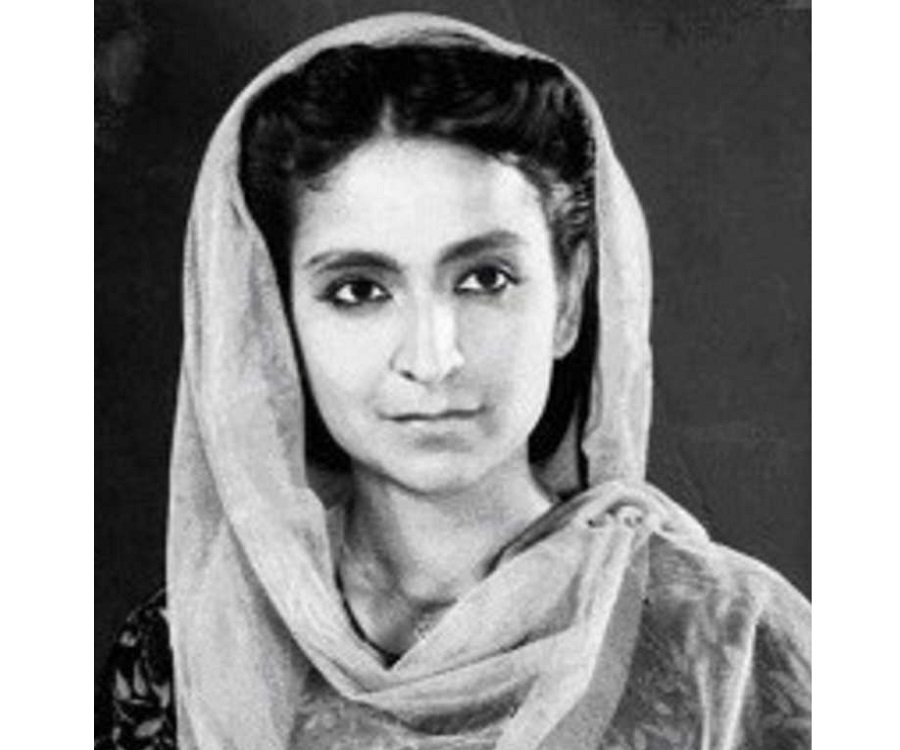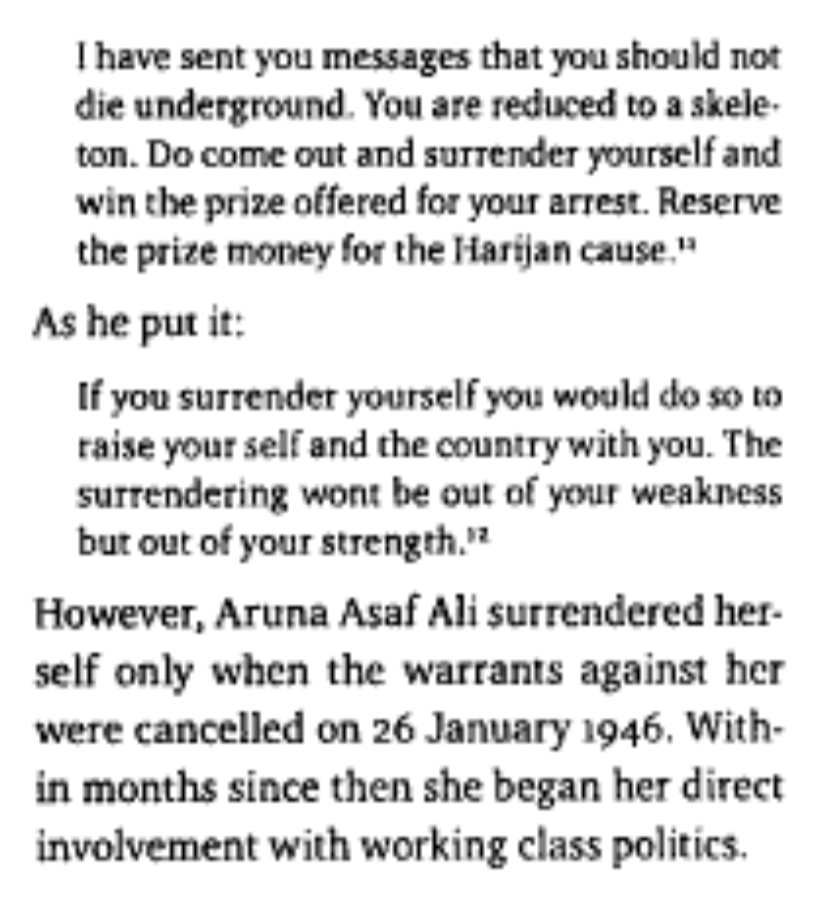But Aruna Asaf Ali was more than a symbol or office holder. Educator, Publisher (she began the daily & #39;Patriot& #39; & the weekly & #39;Link& #39;) & Activist, her contribution - socially & politically - to not just freedom, but the causes of socialism, secularism & feminism in India is immense.
Short biographies of Aruna Asaf Ali are all over the internet, - personal and objective accounts - but if we& #39;re to recommend 1 piece for you to read on this remarkable personality it is this paper presented at the Indian History Congress by Biswamoy Pati:
#metadata_info_tab_contents">https://www.jstor.org/stable/40279255?seq=1 #metadata_info_tab_contents">https://www.jstor.org/stable/40...
#metadata_info_tab_contents">https://www.jstor.org/stable/40279255?seq=1 #metadata_info_tab_contents">https://www.jstor.org/stable/40...
& #39;From the Parlour to the Streets: A Short Note on Aruna Asaf Ali& #39;, traces her journey from "the secluded & exclusive world of a woman who had a middle class upbringing" to "the streets" where she became a socio-political firebrand and leader— helming movements, spurring revolt.
Born Aruna Ganguly in Kalka (Haryana) on this day in 1909, to a Bengali, Liberal, Brahmo Samajist family, she had a syncretic upbringing, studying at the Sacred Heart Convent in Lahore, then Nainital, then teaching at the Gokhale Memorial in Calcutta.
She went on to marry, in 1928, Asaf Ali, a prominent Congress leader, against her family& #39;s wishes (on grounds of religion and age). Her quote from Verinder Grover& #39;s & #39;Great Women of Modern India: Aruna Asaf Ali& #39;...
She became a Congress member after her marriage and was involved in the Salt Sayagraha, leading processions, addressing meetings and organising pickets when the Civil Disobedience Movement was launched. She was imprisoned for & #39;Vagrancy& #39;.
The government held that the Gandhi Irwin Pact that called for the release of political prisoners didn& #39;t apply to her because of the charge she was arrested under, but her political co-prisoners refused to leave too and this led to a public agitation securing her release.
In 1932 Aruna Asaf Ali was imprisoned in Tihar where she protested against the treatment of political prisoners with a hunger strike. This led to an improvement of conditions in Tihar but she was transferred to Ambala, where she suffered solitary confinement.
Then came the 1942 Quit India Movement, possibly the most powerful agitation against the empire. Aruna Asaf Ali& #39;s flagging this movement off (literally) has been noted in the 1st tweet. She became a & #39;full-time" activist & went underground to evade arrest. Her property was seized.
Aruna Asaf Ali has been called "the heroine of the 1942 Movement" for her brave tenacity in those times. But she wasn& #39;t. She was its hero. An award of Rs 5000 was announced for her. Upon hearing she had fallen seriously ill, Gandhi wrote to her. Here are excerpts, & her response.
She said she has "become a socialist" after 1942. In 1946, she was involved in the Royal Indian Navy Revolt ( https://en.wikipedia.org/wiki/Royal_Indian_Navy_mutiny)">https://en.wikipedia.org/wiki/Roya... & its aftermath which saw the working class strike in cities. She held her ground despite resistance from Congress leaders Nehru, Azad and Gandhi.
The RIN revolt, in short, was based on racist discrimination on account of pay, food and allowances. 250 people were shot down. When it spread to the cities it had taken on the larger contours of the then existing class issues. It saw the unification of Hindus and Muslims.

 Read on Twitter
Read on Twitter





